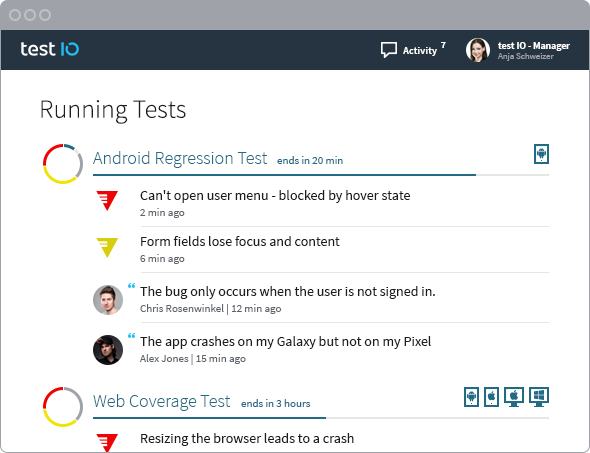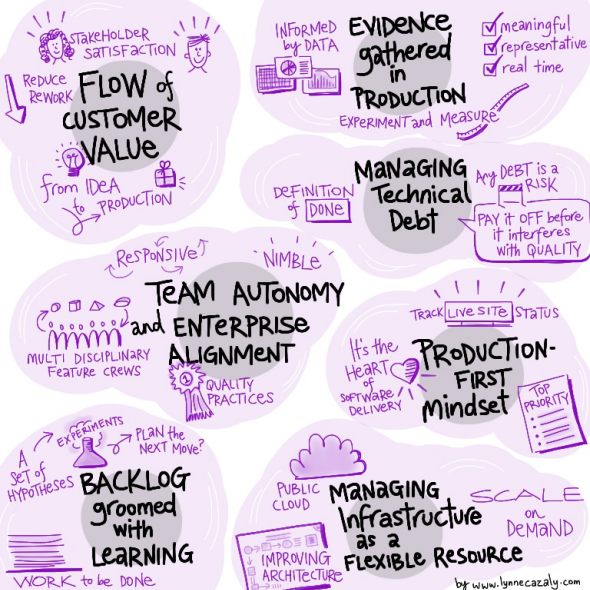In an election year, the term “outsourcing” can be a volatile one. So perhaps it’s a good thing that new approaches to age-old development sourcing problems are taking outsourcing and making it about tasks, not jobs.
A perfect storm of APIs, SaaS, the Web and mobile platforms has made more precise use of non-staff software development professionals possible. Instead of signing a contract with a firm in India, Russia or China to develop or test mainline applications, development teams can use new services like CodeAr.my, CloudSpokes and uTest to get development done almost on-demand. These services bring development contracts and jobs to the freelancers, where they can bid on work, or sometimes even compete against one another to meet coding requirements.
In CloudSpokes, users can post development requirements, then choose from a typical pool of three or four finished implementations. David Messinger, chief architect at CloudSpokes, said that developers compete on CloudSpokes in order to win a set prize, typically in the hundreds of dollars range. Today, he said, the site has a hair under 45,000 users, has completed 360 jobs, and disbursed more than US$600,000 to freelance developers who’ve risen to win challenges.
“It’s more of a market-based system,” said Messinger. “I need to get this work done, and here’s the prize amount for it. Multiple people compete on that unit of work, and based on who does the best job, we pay.” Unlike traditional outsourcing models, CloudSpokes developers build applications to specifications, and only the best implementation wins. Both losing and winning entries are still posted online so that the community can critique each other’s coding skills.
CloudSpokes.com was actually constructed through this competitive implementation system, said Messinger. “The CloudSpokes site itself was built on Azure, but we decided to rebuild it,” he said. “We asked our 20,000 members, and they rewrote the entire site from scratch without us writing a single line of code ourselves. It’s not something I would recommend to a client, but we said, ‘Build this service on whatever platform you want,’ so now we’re based on Heroku, some Google AppEngine, and Amazon Web Services.” Each aspect of the site rewrite was paid for through CloudSpokes’ bounty-like system as well.
Another site that offers similar opportunities for entrepreneurial developers is CodeAr.my. Based in Malaysia, this small startup is currently in private beta. While it’s similar in purpose to CloudSpokes, CodeAr.my allows developers to submit bids on projects, which are then accepted or denied by the client. Though CloudSpokes includes the potential for work to be done without pay, CodeAr.my takes a more traditional bid-based approach.
Perhaps the most unique aspect of CodeAr.my is its focus on gamification as a method of generating interactivity, and as a quick way of identifying developer skills. A developer who has won his or her CSS and HTML5 badge, for example, can be assured to know their stuff for work associated with those languages.
Zafrul Azhar Noordin, founder and commander-in-chief of CodeAr.my, said that, upon the posting of a job requirement, “A list of interested candidates or recommended candidates will be provided by the system. [The user] can offer or assign the job to these candidates by reviewing their online profile. The secret is that this online profile is an exact match of their skills” to the job, he said.
Thus far, jobs that CodeAr.my has taken on include slicing PSD files into HTML files, implementing jQuery effects and widgets, plain old debugging, and CSS enhancement. The focus is more heavily on standard coding jobs, not just those confined to the mobile, Web and API-focused CloudSpokes. Noordin hopes to expand that list significantly after the site comes out of private beta.
Crowdsource, not outsource
Outsourcing is a bad word. Crowdsourcing is a buzzword. But by now, thanks to Amazon’s Mechanical Turk and uTest, it’s now a fairly standard tool in the SaaS chest. Matt Johnston, chief marketing officer for uTest, said that once-skeptical enterprises have really taken to the service thanks to the need to be agile on mobile devices and on the Web.
Mobile, in particular, has been a major focus for uTest users in recent years, he said. “We’ve had requests, like ‘I need to test this when [the phone is] roaming,’ or ‘I need two people, one person driving and testing [as the phone signal is] jumping from tower to tower.’ People have come with mapping applications and said, ‘I want people to actually go to the mall, turn left, go to the library, and see how this mapping application is working outside of the lab and in the wild.’ We’re seeing more and more of that because location-based applications are taking off, and it’s insufficient to test that in a lab setting.”
So despite outsourcing’s ugly image, the fundamental principle is still highly useful, thanks to a more connected world, REST APIs, and the proliferation of electronic devices that can talk to the Internet. “I think it’s the future for outsourcing,” said CloudSpokes’ Messinger.
He even said that some of the coding done on CloudSpokes has been specifically targeted at improving open-source projects. He said that Adobe, CloudSpokes and Facebook have been collaborating on improving PhoneGap, and that some of the nitty-gritty work was completed through freelance work.
The possibilities opened by such on-demand development are nearly limitless. Don’t like that open-source library you’re using, but don’t have the time or person-power to improve it? Bring in the coders of fortune.
Previously, outsourcing required the opening of internal systems to external users who needed access to the corporate database. The company was not likely to want to open that data up.
But today, all of that data can be relocated to the cloud, or perhaps already lives there, suggests Quinton Wall, director of technical platform marketing at Salesforce.com. “We’re seeing a lot of usage in the application integration space. Users ask questions like, ‘How do I connect Evernote [a popular social note-sharing service] with Salesforce?’ This is thanks to the REST API and open standards.”
And this is the great leveler that turns outsourcing on its head: Rather than sending coding jobs to India or Russia, an enterprise could simply be sending them across town to a 20-something with three months to kill between college years, or to a random developer in Saskatchewan. In the end, it doesn’t matter, because all Internet-connected developers across the world now have access to the same resources.
Messinger puts it more succinctly: “All you need is Internet access, and you can get access to the best machines in the cloud. It levels the playing ground. Instead of us tapping into a captive market, we have a wide open market. It gives us access to a wide range of talent without the overhead of offshore development.”






